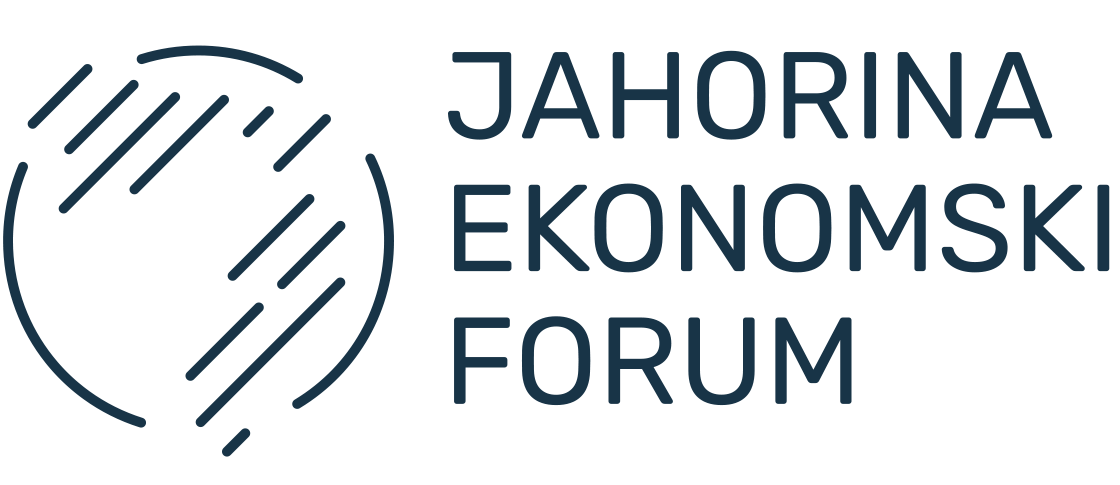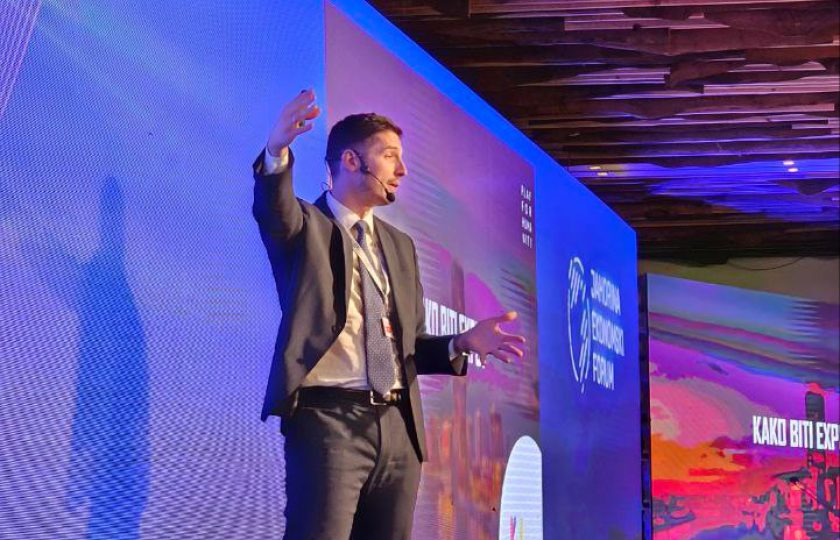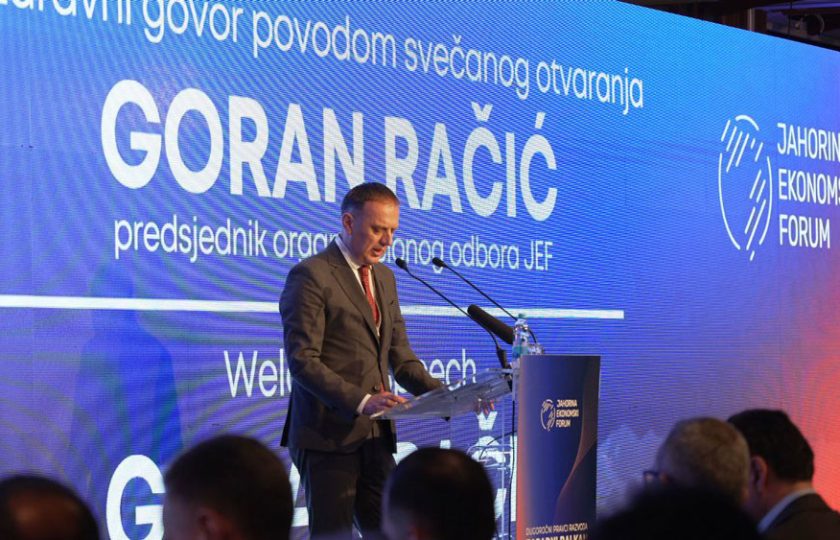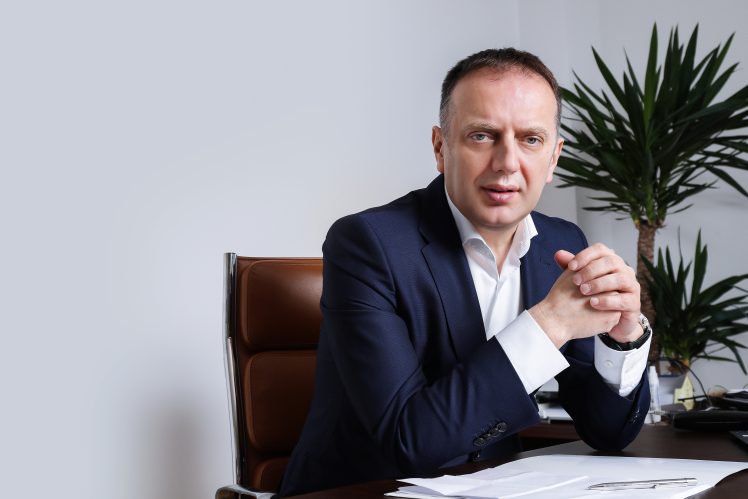
Goran Račić on “Jahorina Economic Forum”: Regional connectivity a prerequisite for further progress
The seventh “Jahorina Economic Forum” will be held from May 14th to 16th this year, and according to the organizers’ announcements, a record number of participants is expected.
In addition to the central panel on the Western Balkans’ long-term development directions, numerous panels will address perspectives and challenges of artificial intelligence application, green mining as both a developmental opportunity and an environmental issue, the unique regional market, creative industries, energy transition and its associated challenges, circular economy, electromobility, sustainable agriculture, and the application of digital tools, as well as business collaboration and investment in the Republic of Srpska. Regional investors will discuss experiences with regional free zones, with participation from domestic and regional leaders, representatives of leading companies, and foreign investors.
“This year’s forum is a continuation of the previous two forums, which primarily focus on regional topics. We are aware that we must develop regional cooperation and connectivity as it is a significant prerequisite for further progress,” said Goran Račić, President of the Banja Luka Chamber of Commerce, in an interview for the Banja Luka.net portal.
We spoke with Goran Račić about the Jahorina Economic Forum, as well as the state of the domestic economy, the challenges it faces, and the Chamber’s plans for the coming period.
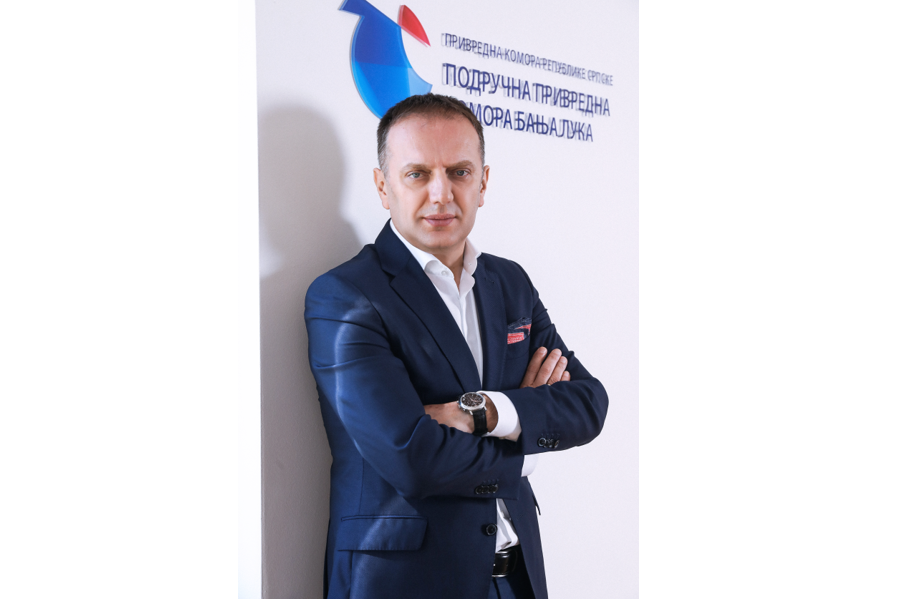
The “Jahorina Economic Forum” this year is themed “Western Balkans – Long-term Development Directions.” How are the preparations going?
RAČIĆ: Preparations are in full swing; we already have most of the program ready. We expect confirmation of participation from about five percent more panelists, so we can say that everything is in the final stages. This year’s forum is a continuation of the previous two forums, which primarily focus on regional topics. We are aware that we must develop regional cooperation and connectivity as it is a significant prerequisite for further progress in this region. It is also favorable that Bosnia and Herzegovina recently obtained candidate status, so we are somewhat closer in that regional sense. Our immediate neighbors, Montenegro and Serbia, have obtained candidate status in the previous period and are currently in the process of realization and alignment of certain chapters.
So, regional topics and development are our goals. We will consider all topics relevant to the region, starting with the specific obligations the region has undertaken, such as the issue of green transition, the green agenda, and how far we have progressed in that regard, what we can expect, whether it is a burden or whether more assistance from the EU is needed. The obligations defined by the green agenda and energy transition require significant financial support from the European Union.
We will be discussing the resources that this region possesses. On that topic, we plan to motivate the entire region and mobilize current speakers to see how we can leverage our resources. We want to determine if our resources can be a developmental opportunity given the upcoming times, or if they will be subject to internal political or environmental issues… When it comes to other panels, there’s also the issue of agriculture and food. Today, food is a priority for all developed countries. We see that wars will no longer be fought over oil as they were in the past; now, the focus is on food and water. The entire region has excellent resources in food production. Today, it’s not just about agriculture but also agribusiness, and it’s possible that these processes will develop on other platforms in the future. The influence of digitization on the economy is increasing. We are keen to make agriculture more sustainable through these digital processes.
This is the leading regional event in the field of economics. Who will the Jahorina Economic Forum bring together this year, how many participants do you expect, and who are the standout panelists?
RAČIĆ: We’ve made an effort to invite the most competent people from the region to all the panels, which are very relevant. For the topic of natural wealth and green mining, we’ll have Professor Dejan Ilić, who is the creator of the battery, former director of Varta, and an advisor in Angela Merkel’s team for renewable sources. He’s certainly one of the people who has something significant to say in this field. As for the central panel dealing with long-term development directions, which we can call a political panel, we expect all regional leaders to contribute. When it comes to agriculture as a panel, we expect regional agriculture ministers and regional leaders in food production.
I can confidently say that the most competent people who can provide answers to specific questions are represented in all our panels. Regarding energy transition and energy issues, there will be regional directors of power utilities from Bosnia and Herzegovina, Republika Srpska, Serbia, Montenegro, North Macedonia, along with experts in the field who are currently involved in energy production as private entrepreneurs. Additionally, there will be consultants who are well aware of our obligations regarding energy transition. Furthermore, we’re moving towards certain new directions in electromobility. The moderator of that panel is journalist Mladen Alvirović, and representatives from Mercedes, Verano Motors, and other regional auto companies aiming for a greater role in electromobility will participate.
The problem with the domestic economy is uncertainty
What burdens the domestic economy the most in economic terms, and what challenges does the economy face?
RAČIĆ: At the moment, a major problem for our economy is uncertainty. All processes occurring at the global level over the past two to three years significantly influence both our economic capabilities and our developmental potential. On one hand, we have reduced demand for our products in the Western European market due to consumer uncertainty in Western Europe, fear of job loss, reduced wages, and the recession that has been present, along with high inflation rates. All of this has led to a decrease in consumption in the Western European market, resulting in reduced demand for our export products, which we exported to the Western European market to a certain extent, about 70%. Before that, we faced problems with the rising costs of production in terms of raw materials.
Especially this year, we’ve seen an increase in labor costs, with the minimum wage increasing by about 28%. We have increased wage costs that certainly affect profitability and the capital of companies. In such circumstances, companies face a labor shortage, so in the coming period, we will focus more on developmental projects in the economy, which will involve acquiring new technologies that could impact profitability and the competitiveness of our economy. Through new technologies, we could somehow compensate for the lack of labor.
Clearly, in the coming period, we will, like the entire region and Europe, need to import labor. Already, we have workers in construction and a certain number of workers in manufacturing industries, and in the future, we will need workers in the hospitality industry as well. It is evident in the region; you have hospitality workers from Indonesia, Nepal, the Philippines, and other countries, and this is something that will soon be happening here. Therefore, at the forum, we will discuss demographic challenges for the Western Balkans and the issue of migrations with demographers, to what extent all of this affects further developmental processes, and how it will impact the current situation in terms of labor market needs. I’m looking forward to hearing from all the participants in the Demography and Migrations panel and their impact on the labor market and developmental processes. Through assessments and analyses, we will be able to predict what to expect in 2030, 2040, 2050, and see which occupations, according to some estimates, will be most relevant in the next 20 or 30 years.
It’s clear that certain occupations will cease to exist over time, but new occupations will be created very quickly. We will have a significant panel on artificial intelligence and the use of artificial intelligence in business. This is a major challenge for the entire region. We have trends present worldwide. It is necessary to create the application of artificial intelligence in business very carefully and under control. Professors and panelists from the National Institute of Serbia, as well as distinguished managers dealing with artificial intelligence and robotics, will surely have something to say on this topic.
How will the sanctions imposed by the U.S. administration on certain companies affect the economy?
RAČIĆ: As someone who is a legalist and involved in economics, I am always against sanctions that are not supported by evidence and not processed by judicial decisions. In this case, we have sanctions that do not have formal legal coverage, and thereby we undermine the economic potential of our country, while on the other hand, we create a practice that will affect the market itself and create a negative image and atmosphere in Republika Srpska. I think we should do everything to lift these sanctions as soon as possible and free the economy from this burden and threat. Unfortunately, from what I’ve been informed of these days, there’s little talk of lifting sanctions; on the contrary, there’s talk of expanding the list of companies that could be sanctioned. In any case, I condemn it. We will try to influence the centers of power to show them that sanctions are not an instrument to help a country. Everyone has a mission to help create a more acceptable environment for development and further investment.
What is the situation with foreign investments? The Chamber is definitely the bridge in connecting and linking entrepreneurs both in our area and with foreign ones?
RAČIĆ: Unfortunately, in Bosnia and Herzegovina, we cannot boast about investments in the previous period. They are quite limited due to the political situation itself. We have a poor reputation as a space where certain political processes have not yet been completed, and as a result, significant foreign investments have not come to the expected extent at this moment. The positive aspect is that companies present in the territory of Republika Srpska, primarily from the most developed Western countries, such as Germany and Austria, have been increasing their capacities year by year. We have a situation where one of the world’s largest auto parts producers, “Mahle,” has built a new factory spanning over 33,000 square meters in Laktaši, which will be operational this month. This will lead to the employment of several hundred workers, which is a positive example. Additionally, there is the company SHP “Celex,” which has a five-year investment plan of around 100 million BAM. Unfortunately, we do not have any significant influx of new foreign investments, but all existing investors in the territory of Republika Srpska have development projects for the coming period, which means that there is potential for investment growth here, given our favorable tax environment and, above all, the available workforce that is working in these companies and can meet market demands.
Republika Srpska has significant development potential in the energy sector
In which sectors do we currently have the most potential for development?
RAČIĆ: When it comes to Republika Srpska and the region, the energy sector is among the priority projects. In energy, we have significant developmental potential, considering that almost every local community is bordered by two or three rivers. Also, natural conditions regarding wind and sunlight allow us to consider such projects, meaning that energy is certainly at the top of the priority list when it comes to investments in Srpska. I would also mention the need for larger and more significant investments in the agriculture sector, and we must consider developmental potentials such as the IT sector and artificial intelligence. Countries that have had a quality educational base, universities, have managed to create a new generation of people who are now performing significant roles in the global market. These are the people who are changing the world and adapting it to new trends. We have a solid potential for the development of the IT sector, and I believe that we should focus more on educating new talent, creating a university base related to designing new resources in terms of new personnel, and thereby adapting our tax environment to these individuals. A significant portion of the IT sector today operates on the margins in terms of laws, working as freelancers, not covered by the existing legal tax system, and we are preparing proposals for legislative regulations to motivate all individuals from that gray area to transition into normal legal frameworks.
Plans of the Regional Chamber of Commerce Banja Luka for the next period.
RAČIĆ: Our goal is to position the Chamber every day as an indispensable factor in discussions with relevant institutions regarding representing the interests of the economy. We aim to work with the Government of Srpska to create an environment that will meet the needs of the economy. We must find a way to compensate for all negative trends such as reduced exports, reduced demand in Western markets, and at the same time, increased wages. We need to find a way to help companies affected by wage increases. Whether it’s a partial tax refund related to increased wages or an increase in the non-taxable portion of income to a higher amount… These are all modalities to alleviate the existing negative consequences of wage increases, as well as reduced demand in Western markets and decreased exports.
(Aldijana Mirković, Banjaluka.net)
